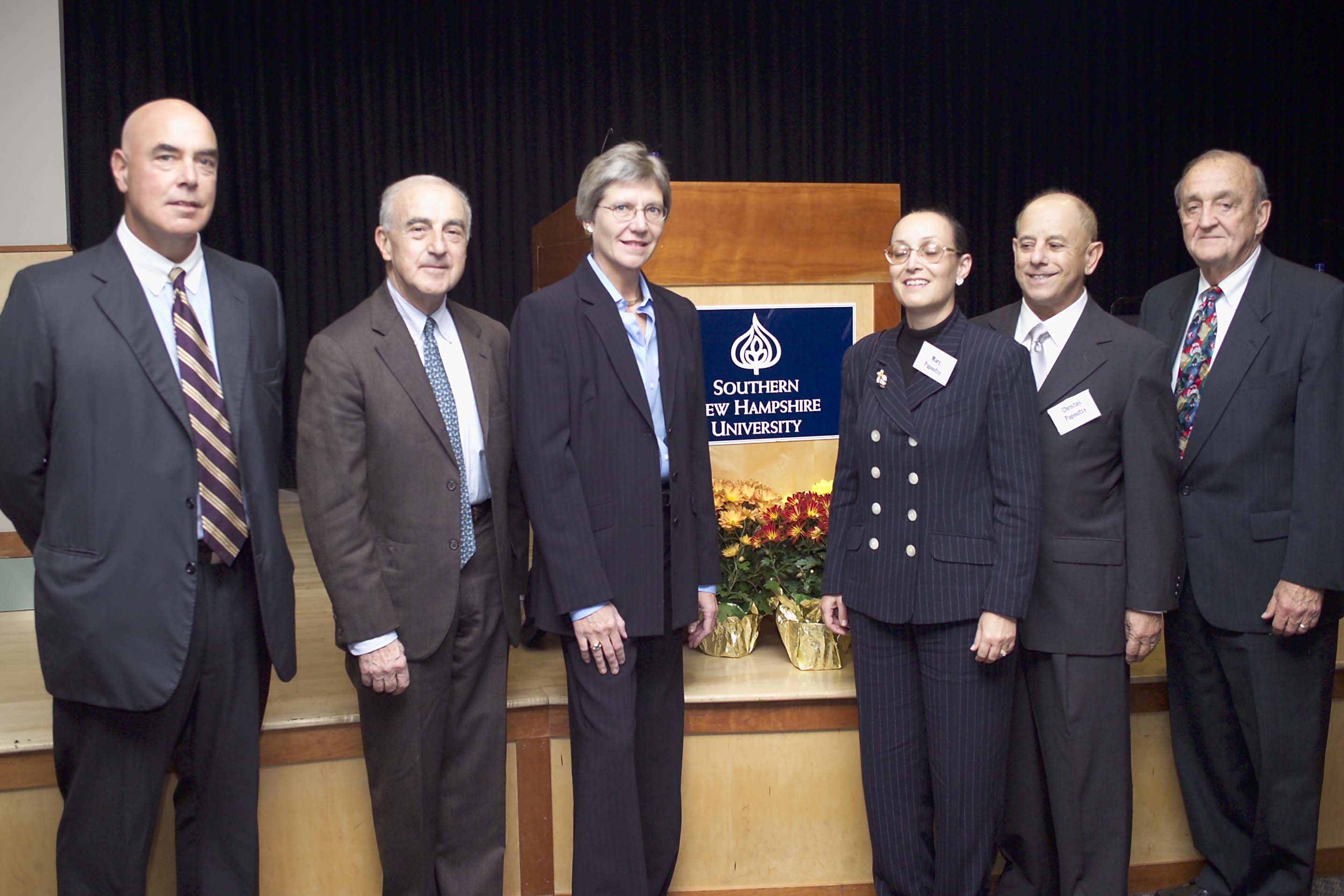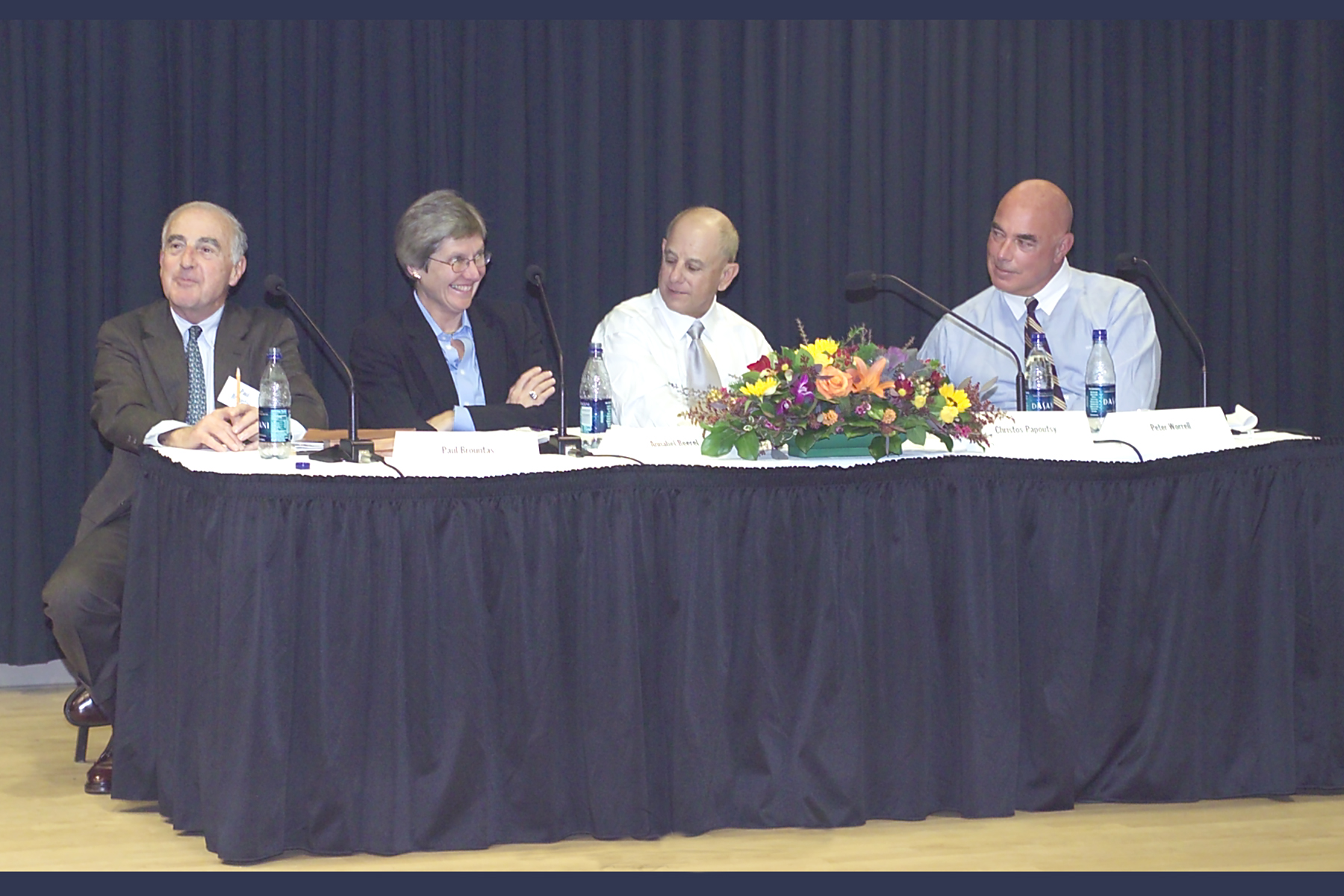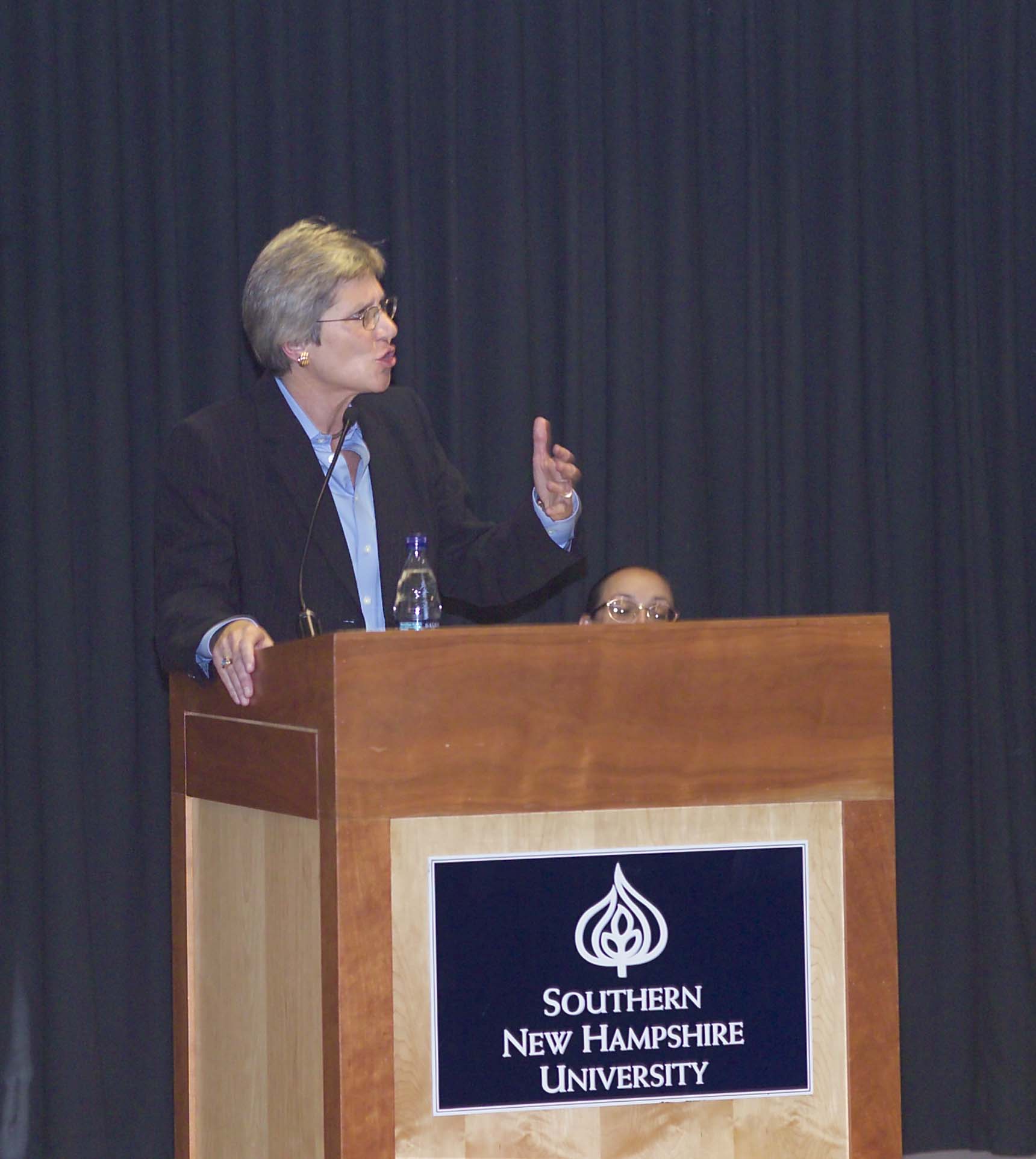 |
|
|
|
|
 |
 |
|
The Christos and Mary Papoutsy Distinguished Chair in Ethics
at Southern New Hampshire University Restoring Public Trust |
|
On November 8,2006, a capacity crowd of faculty, students, trustees and representatives from the community attended a forum: "Restoring Public Trust". Mary Papoutsy, Moderator, welcomed the panelist and guests. The forum began with attorney Paul P. Brountas opening remarks on "A Common Sense Perspective on Corporate Governance". One segment of Paul Brountas's talk was on: |
 From Left to(R) Peter Worrell, Paul Brountas, Dr. Annabel Beerel, Mary Papoutsy, Chris Papoutsy, Kimon Zachos |
|
The Twelve Precepts for Directions
1. Establish the right culture and tone at the top. 2. Contribute to development of goals and strategies. 3. Work with management to assure board meetings are informative and constructive-be proactive. 4. If you don't understand a proposal or disclosure - ask questions and listen. 5. Oversee managements performance. 6. Monitor the corporations compliance. 7. Create and maintain a collegial environment in the board room, but don't be afraid to disagree. 8. Be careful and skeptical about related-party, novel or "creative" transactions - and excessive compensation programs/awards. 9. Link executive pay to performance. 10. Observe and apply the "Five I's of Good Corporate Governance" 11. Understand the need for - and require management to provide - prompt, fair and full disclosure of material events affecting the corporation. 12. When evaluating proposals and suggested courses of action, be guided by the need to answer the paramount question - "How does this benefit the shareholder?" For more information on Corporate Governance, reference Paul Brountas's book, Boardroom Excellence: A Commonsense Perspective on Corporate Governance, available at Southern New Hampshire Library. |
|
The second panelist: Peter Worrell, Managing Director, The Bigelow Company, LLC. The investment banker and the challenge of conflicts interest. Peter Worrell's key points in his presentation covered the following: The rule of investment banking Why is it germane to discussions of ethics and morality and morality? |
 From Left to (R) Paul Brountas, Dr. Annabel Beerel, Chris Papoutsy, Peter Worrell |
| It's all about capital investment banking has built in ethical dilemmas. Time and effort economy Vs. value creating economy The physics of public market and private market dominant characteristics of each. Kind of firm matters - financial supermarket versus boutique - playing field has been absolutely leveled by technology. What are the kinds of people, leaders that would in each? Two biggest earthquakes in capital markets the last twenty five years: In Public Markets Completion of the movement of the market towards large impersonal institutional investors. In Private Markets The formation, rise, and now complete dominance of the private equity firm and an investor in private companies. What is a private equity firm? Restoring public trust implies that the public ask tough questions, of others... but also of ourselves. Who benefits from public or private company decision making? Who owns these companies? Christos Papoutsy, the third panelist spoke on: Effective Corporate Governance means Effective Checks and Balances. The Commonsense Approach Four Basic Business Principles: |
|
|
A Simple Test |
|
|
The Ethical Framework Test, consists of four simple questions developed to assist business professionals and leaders in areas not clearly covered by legal statures and standard practices.- Take the Test The challenge of moral capitalism for all businesses is to tip the weight of wealth creation towards humanity's more noble possibilities. |
|
| The fourth and final presenter was Dr. Annabel Beerel, holder of the chair who spoke on: Ethics Begins at the Top - What this Really Means My Brand of Ethics
|
 Dr. Annabel Beerel |
|
|
Click here for more detailed information about this event and the panelists |
|
|
To view the panelist presentations click on their name below: Paul P. Brountas A Common Sense Perspective Christos Papoutsy Effective Corporate Governance Means Effective Checks and Balances Peter Worrell The Investment Banker and the Challenge of Conflicts of Interest Dr. Annabel Beerel Ethics Begins at the Top - What This Really Means |
|
|
(Posting date 7 December 2006) HCS readers are invited to view other articles about SNHU or business ethics at our extensive, permanent archives under the Business Ethics section at the URL http://www.helleniccomserve.com/archivebusinessethics.html or the Christos and Mary Papoutsy Distinguished Chair in Business Ethics at Southern New Hampshire University at http://www.helleniccomserve.com/archivepapoutsychairbizethics.html. The purpose of the distinguished chair in ethics is to promote and enhance students’ and community members’ awareness of ethics in personal and professional settings through teaching, community lectures and conferences. These events will foster understanding and assist in the application of lessons taught by current and classical ethicists to 21st-century settings.The chair serves as the cornerstone for an integrated university program in business ethics that encompasses the undergraduate and graduate levels. For more information about these events or about the ethics chair, contact Jane Yerrington at SNHU (603-668-2211 x2488) or visit the webpages of the ethics chair at http://www.snhu.edu/1301.asp. |
|
|
|
|
|
|
|
|
|
|
2000 © Hellenic Communication Service, L.L.C. All Rights Reserved. http://www.HellenicComServe.com |
|
